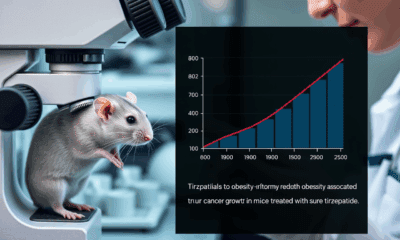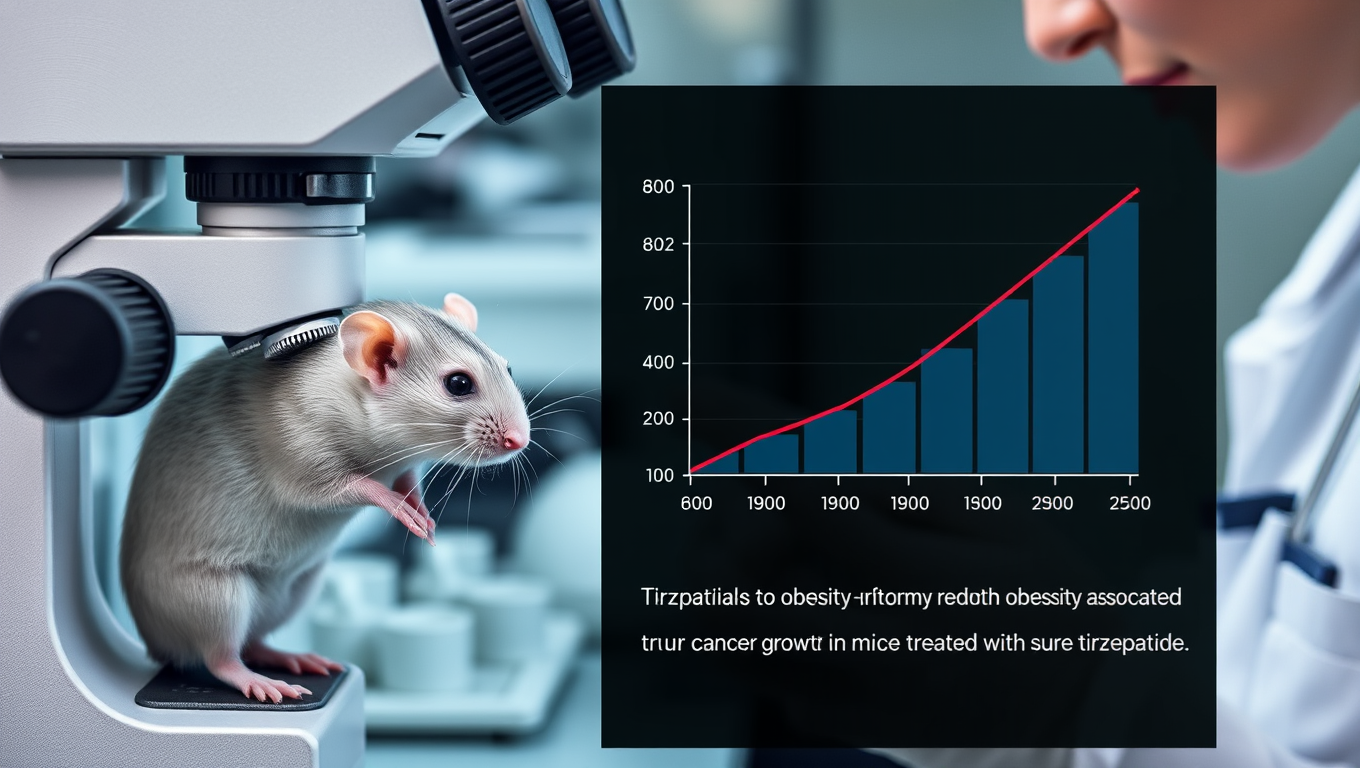While we try to keep things accurate, this content is part of an ongoing experiment and may not always be reliable.
Please double-check important details — we’re not responsible for how the information is used.
Diabetes
The Fungal Conundrum: Study Suggests Agriculture’s Antifungals Contribute to Yeast Resistance
Genomic changes in the infectious yeast Candida tropicalis may play a role in its resistance to antifungals, according to a new study. These genomic changes can be brought on by a common antifungal, TBZ. The study demonstrates that the use of TBZ in agriculture may contribute to the increasing problem of antifungal resistance.

Diabetes
Breaking Ground: Tirzepatide Shows Promise in Reducing Obesity-Associated Breast Cancer Growth
In a striking new study, the anti-obesity drug tirzepatide, known as Mounjaro and Zepbound, not only triggered significant weight loss in obese mice but also slashed breast cancer tumor growth. The research, presented at ENDO 2025, links body fat reduction to better cancer outcomes, suggesting that these next-generation weight-loss drugs might offer unexpected benefits beyond metabolic health. With traditional dieting often falling short, this dual-action approach could reshape how doctors tackle obesity-related cancers.
Diabetes
The Hidden Threat: How High Blood Sugar Affects Men’s Sexual Health
Aging men aren’t just battling time—they’re up against rising blood sugar. New research reveals that subtle increases in metabolic markers like glucose have more influence on declining sexual health than age or testosterone levels alone. The findings, based on a 6-year study of otherwise healthy men, show that even below-diabetes-level sugar changes can impair sperm mobility and erectile function. But there’s good news: lifestyle choices and medical support could help men maintain reproductive vitality well into older age.
Animals
The Lemur Secret to Aging without Inflammation: A Breakthrough for Human Health?
What if humans didn’t have to suffer the slow-burning fire of chronic inflammation as we age? A surprising study on two types of lemurs found no evidence of “inflammaging,” a phenomenon long assumed to be universal among primates. These findings suggest that age-related inflammation isn’t inevitable and that environmental factors could play a far bigger role than we thought. By peering into the biology of our primate cousins, researchers are opening up new possibilities for preventing aging-related diseases in humans.
-

 Detectors3 months ago
Detectors3 months agoA New Horizon for Vision: How Gold Nanoparticles May Restore People’s Sight
-

 Earth & Climate4 months ago
Earth & Climate4 months agoRetiring Abroad Can Be Lonely Business
-

 Cancer4 months ago
Cancer4 months agoRevolutionizing Quantum Communication: Direct Connections Between Multiple Processors
-

 Agriculture and Food4 months ago
Agriculture and Food4 months ago“A Sustainable Solution: Researchers Create Hybrid Cheese with 25% Pea Protein”
-

 Diseases and Conditions4 months ago
Diseases and Conditions4 months agoReducing Falls Among Elderly Women with Polypharmacy through Exercise Intervention
-

 Albert Einstein4 months ago
Albert Einstein4 months agoHarnessing Water Waves: A Breakthrough in Controlling Floating Objects
-

 Chemistry4 months ago
Chemistry4 months ago“Unveiling Hidden Patterns: A New Twist on Interference Phenomena”
-

 Earth & Climate4 months ago
Earth & Climate4 months agoHousehold Electricity Three Times More Expensive Than Upcoming ‘Eco-Friendly’ Aviation E-Fuels, Study Reveals





























